Jul 9, 2024 11:35 AM
Trumpeter, Educator Jim Rotondi Dies at 61
Jim Rotondi, a renowned hard-bop trumpeter, composer and educator, died suddenly on July 7 at a hospital in France. He…
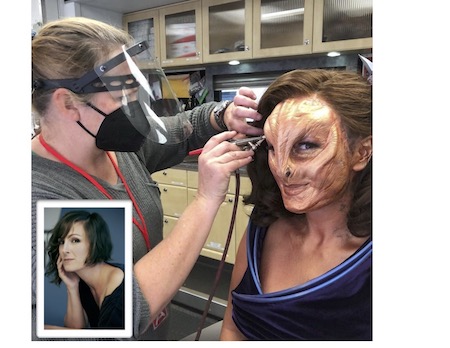
Gazarek is glad just to be able to have the chance to perform jazz to a wider audience from this planet, in this time.
(Photo: Fox)Of all the things Sara Gazarek imagined, hoped or dreamed she would ever do in her life, singing on a stage as an alien creature next to an eight-armed drummer in the lounge of a spaceship on a Hollywood set for a hit network television show was not on her list. And yet, that is precisely the situation she found herself in toward the end of 2020, after getting an email from the music director for the Seth MacFarlane-produced sci-fi drama The Orville.
Gazarek, a Grammy-nominated vocalist and Rising Star in DownBeat’s 2022 Critics Poll, thought it would be a welcome relief and certainly no less surreal than her reality in the middle of a global pandemic. “It was basically just talking to a Zoom screen in front of a bunch of students, livestreaming interviews with other artists and sitting at home baking sourdough bread,” she remembered, speaking to DownBeat via video from Oak Harbor, Washington. She detailed the extensive process of working with special-effects makeup artists Howard Berger and Tami Lane to transform into her otherworldly character on Twitter shortly after the episode she was on aired in July. “There was so much investigation and thought and time and craft that went into every element of this alien jazz singer,” she said, noting that this attention to detail extended to the music itself.
She explained, “It would have been really easy for Seth to go to a contractor and say, ‘Let’s find an actress who sings … let’s find a studio singer who listens to jazz and has a good voice.’ But I commend him for reaching out to the community and hiring actual jazz musicians to be involved in what he does, with the idea that he wants real art involved in the show, instead of just a kind of appropriation of art.”
Peter Erskine had recommended Gazarek for the role. He has been the drummer for MacFarlane since the actor, writer, director and producer decided to make a serious venture into jazz singing with his 2011 debut album Music Is Better Than Words (Universal). Erskine had responded to an inquiry by Joel McNeely, a music arranger for The Orville, seeking recommendations for a female jazz singer to pre-record a song for the show, and possibly to also enact the performance onscreen. Gazarek is a teaching colleague of Erskine’s at USC’s Thornton School of Music. “I had just been keeping up with Sara … I was a very big fan,” he said of her recent work, and he knew she was right for this opportunity. “I thought she did a wonderful job, not only as a vocalist, but as an alien,” he said. “Sara is simply a wonderful musician,” McNeely told DownBeat via email. “A great person and super professional. She was my first choice from the beginning and Seth responded to her voice as well. She has a beautiful, rich sound, and her interpretive skills are fantastic.”
Erskine, pianist Tom Rainier and bassist Chuck Berghoffer recorded backing tracks — remotely, due to the pandemic — for Gazarek to sing over, which she did at a Los Angeles recording studio, while MacFarlane himself produced the session via video chat. It became apparent to Gazarek thorough her interaction that MacFarlane was more than just a casual jazz fan.
The tune was somewhat surprising for a sci-fi show: “Close Enough For Love,” a lesser-known ballad written in 1979 by Johnny Mandel and Paul Williams for the movie Agatha. The song was cleverly handpicked by MacFarlane to mirror what was happening between two of the show’s main characters: Claire, the ship’s doctor, and Isaac, an artificial life form who, thanks to a modification to his processors, is able to “feel” emotional love for the first time.
“When I saw the episode, I went, ‘Wow, perfect,’” Erskine remembered. He noted MacFarlane’s depth of musical knowledge, saying, “When it comes to Nelson Riddle, or Neal Hefti, or Gordon Jenkins — whoever might have crafted an arrangement for Frank Sinatra — he can tell you more about it than just about anyone I can think of.”
MacFarlane has long used his power as producer to insert gems from the Great American Songbook into his shows and movies. On this most recent season of The Orville alone, an aware viewer might recognize works by Henry Mancini, Oscar Peterson, Joe Pass, Nat King Cole, Aretha Franklin, Elvis and Dolly Parton (who makes a cameo singing and acting as, however improbable, herself). Erskine also makes an appearance (in human form), playing drums behind another main character as he sings a song by James Taylor.
This type of anachronistic programming of pop culture into science fiction has a bit of precedent that has only increased as of late. In the original Star Trek television series, Lieutenant Uhuru (played by the recently departed Nichelle Nichols) was given the occasional moment to showcase her impressive singing voice, hinting at the talent Nichols would display on her own solo jazz album, Down To Earth (Epic, 1967). In an episode of Star Trek: The Next Generation, Commander William Riker shows off his trombone chops, played for real by actor Jonathan Frakes. Of course, who can forget the John Williams jazz-inspired tune performed by Max Rebo and his cantina band in Star Wars? Peter Quill plays ’70s and ’80s rock music on his Walkman as he battles aliens in Guardians of the Galaxy, Kate Bush and Metallica are heard in the latest season of Stranger Things and, most recently, Thor: Love and Thunder features prominently the music of Guns n’ Roses.
On what planet does it make sense to juxtapose music like that onto visions of strange new worlds and fantastic technological wonders? The great sci-fi writer Ray Bradbury once said, “Science fiction is the most important literature in the history of the world, because it’s the history of ideas, the history of our civilization birthing itself.” Do we dare say our music is among the greatest of ideas our civilization has ever birthed and thus will endure for ages to come?
Gazarek is glad just to be able to have the chance to perform jazz to a wider audience from this planet, in this time. “I personally love when there are moments, snapshots of true jazz expression in popular culture,” she noted, “because there are people who will take a moment and say, ‘What is that? I like that, let’s go deeper.’” And looking long toward the future, if there are indeed aliens somewhere in deep space singing ancient Earth-songs, surely that would symbolize not only hope for the future of jazz, but for all of humanity. DB
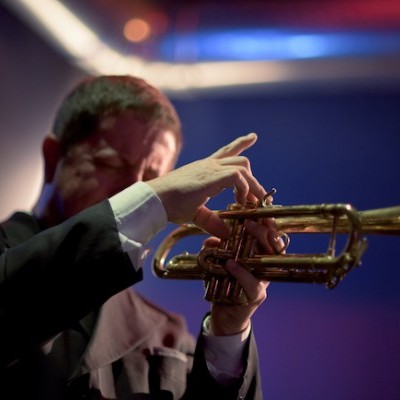
Jim Rotondi was acclaimed for his wide, round trumpet tone, remarkable virtuosity and assured swing.
Jul 9, 2024 11:35 AM
Jim Rotondi, a renowned hard-bop trumpeter, composer and educator, died suddenly on July 7 at a hospital in France. He…
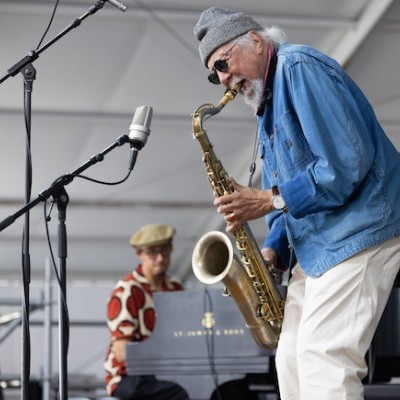
Charles Lloyd, seen here at the 2024 New Orleans Jazz & Heritage Festival, makes DownBeat Poll history!
Jul 11, 2024 12:23 PM
The incomparable Charles Lloyd swept the 72nd Annual DownBeat Critics Poll, becoming the first artist ever to earn…
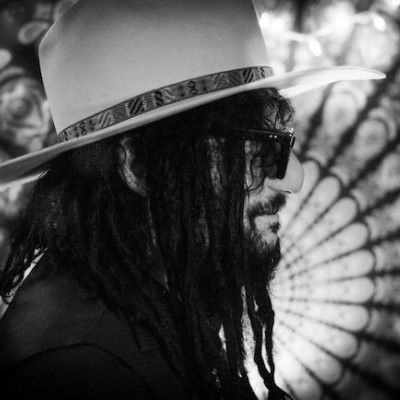
“Being president of Blue Note has been one of the coolest things that ever happened to me,” Was said. “It’s a gas to serve as one of the caretakers of that legacy.”
Jun 4, 2024 12:21 PM
Sitting with Don Was is a comfortable and unhurried exercise. He may seem slightly reserved at first, but ideas and…
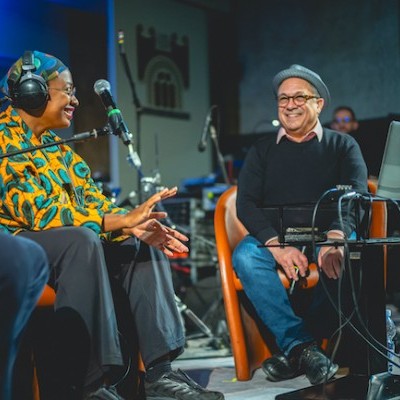
“She reminds me of my childhood and makes we want to cry,” Cécile McLorin Salvant, pictured here with writer Ashley Kahn, said of Dianne Reeves.
Jun 11, 2024 12:31 PM
Italy’s Umbria Jazz Winter is one of those rare annual festivals that not only coincides with a major holiday —…
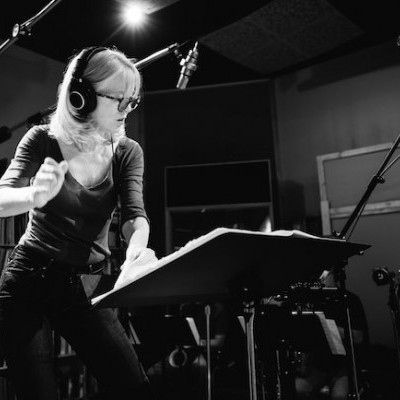
Maria Schneider said of Decades, her new compilation release: “I just wanted to create something, put it in a beautiful box and say, ‘Look at what we did.‘”
Jun 18, 2024 12:00 PM
Maria Schneider opened the sleek black box and placed it on a coffee table in her Manhattan apartment. Inside lay the…